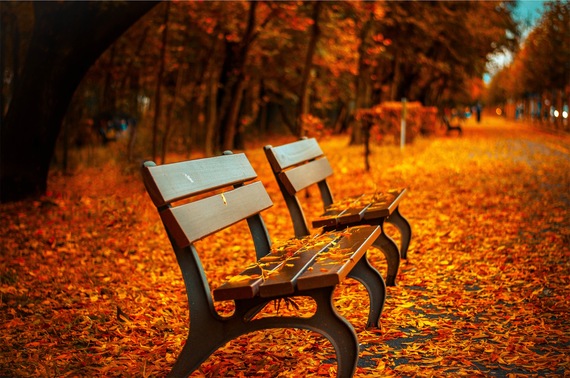"The most difficult times for many of us are the ones we give ourselves."
-- Pema Chödrön, "When Things Fall Apart: Heart Advice For Difficult Times"
You should know that I'm not a big fan of Pema Chodron these days (no offense to her, or to those who love her).
I used to recommend her books to my psychotherapy clients way back before I was widowed. That won't ever happen again, not without some disclaimers anyway. See, her works are useful for many things in life, but intense grief brought on by sudden death isn't one of them.
In the first weeks after my partner drowned, I sat in a coffee shop reading one of her books. As I read the introduction, my temper started to flare. Over and over, she talked about how her "surprise" divorce only happened because she wasn't paying attention. Over and over, she said that all of the "bad" or difficult things in her life had always happened because she wasn't aware enough.
The thing that sent me over the edge, never to return again to fully loving or trusting Pema Chodron, was when she suggested that any pain or difficulty you are having in your life is due to a lack of self-awareness, or to some place you needed to grow.
I was in pain. Her suggestion -- her implication -- that my pain was caused by my own lack of awareness, my own need to "learn a lesson," was the last straw in a long string of judgments and dismissive comments I heard in the months that followed Matt's death. There at my coffee shop table, I stabbed through that book with my pen. Then I tore it to pieces and hurled it into the recycling bin.
Melodramatic, yes (maybe). But this underlying belief that any pain you're currently feeling is your own fault is such utter hogwash. It's patently untrue, and it is deeply, deeply offensive to someone in pain.
Pain simply is. It's a natural, normal response to loss. But the literature in the self-help world, in the therapy world, and sadly, yes even in the world of spiritual guidance, is heavy on blame. Grief is considered unhealthy. A "bad" experience. And in many teachings, it's something you called upon yourself, whether literally or metaphorically, physically or karmically.
That's the problem with "grief support" in our culture. There might be something useful in your teachings, but if you start out by blaming someone for their pain, you've lost them before you even get started.
If you are in pain, if something has ripped in and broken your heart, destroyed life as you knew it -- and as you'd hoped it would be -- it is not your fault. You didn't need this experience to "wake you up," nor did you need it in order to become some enlightened being serving the world through your pain.
You didn't need the accident, or the illness, or the sudden catastrophe to make you into a better, kinder, more empathetic person. You didn't need to learn something that only disaster could teach.
Being sad, being in pain, is not evidence that you've done something wrong. It's evidence of your heart being open. It's evidence of love, and evidence of loss. Staying present to that pain, noticing that truth -- these things are the practice. Staying present is the path.
Given my resistance to blanket spiritual/life statements and their mismatch with intense grief, I've tended to avoid a lot of the more popular books out there. But Pema Chodron does get a lot of things right. I was thrilled to find this passage recently:
"We could learn to stop when the sun goes down and when the sun comes up. We could learn to listen to the wind; we could learn to notice that it's raining or snowing or hailing or calm. We could reconnect with the weather that is ourselves, and we could realize that it's sad. The sadder it is, and the vaster it is, the more our heart opens. We can stop thinking that good practice is when it's smooth and calm, and bad practice is when it's rough and dark. If we can hold it all in our hearts, then we can make a proper cup of tea." -- Pema Chodron, from "The Wisdom of No Escape"
When we practice these things, when we practice listening to the wind, noticing the weather outside, noticing the weather inside, we're not doing that in order to "fix" anything. We're not doing it to suddenly become aware of where and how we've been screwing things up. That's a misunderstanding of the teaching.
We listen, and we notice, in order to hear the truth. To hear the truth of right now. To know ourselves, and in knowing, become able to show up with love and care for ourselves, inside our broken hearts.
When you are adrift in a vast sea of sadness, acknowledge the sadness. Stay with it, stay in it. Honor it by seeing it. Honor it by naming it, as it is, without trying to fix it or change it, without blaming yourself for it.
Hold it all in your heart, then you can make a proper cup of tea. With no extra side of blame, and no need to change the reality of your heart.
Grief is not a lack of awareness. Sadness is not "bad practice." Pema and I may never make up entirely, but I think we can agree on this.
---
Megan Devine is a writer and grief advocate. You can find her at Refuge in Grief, where this post first appeared. To explore your pain with kindness and respect, join her popular Writing Your Grief 30 day course. As one student wrote, "In a world of Kardashians and cat videos, the Writing Your Grief course kind of redeems the internet." Come see why.
